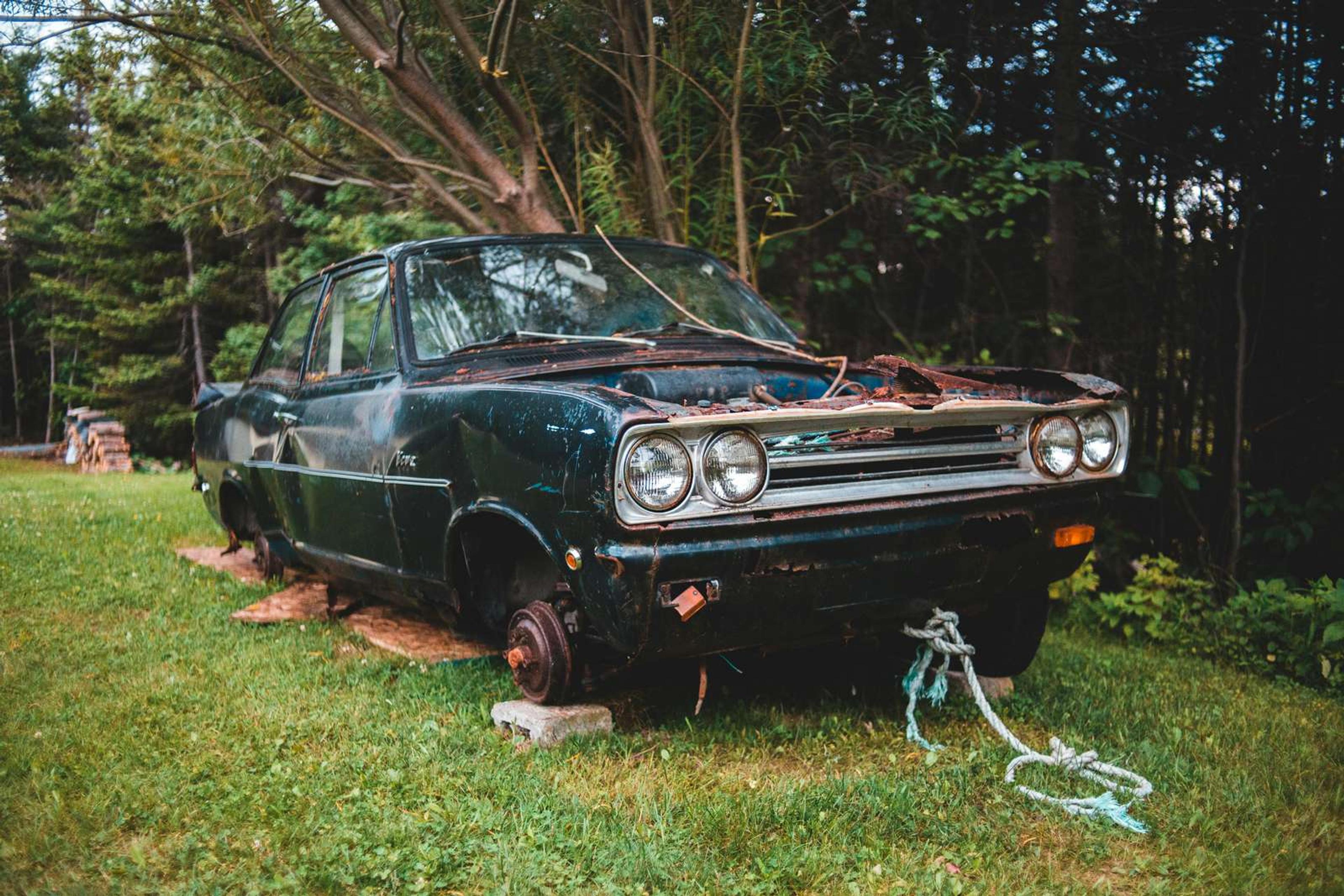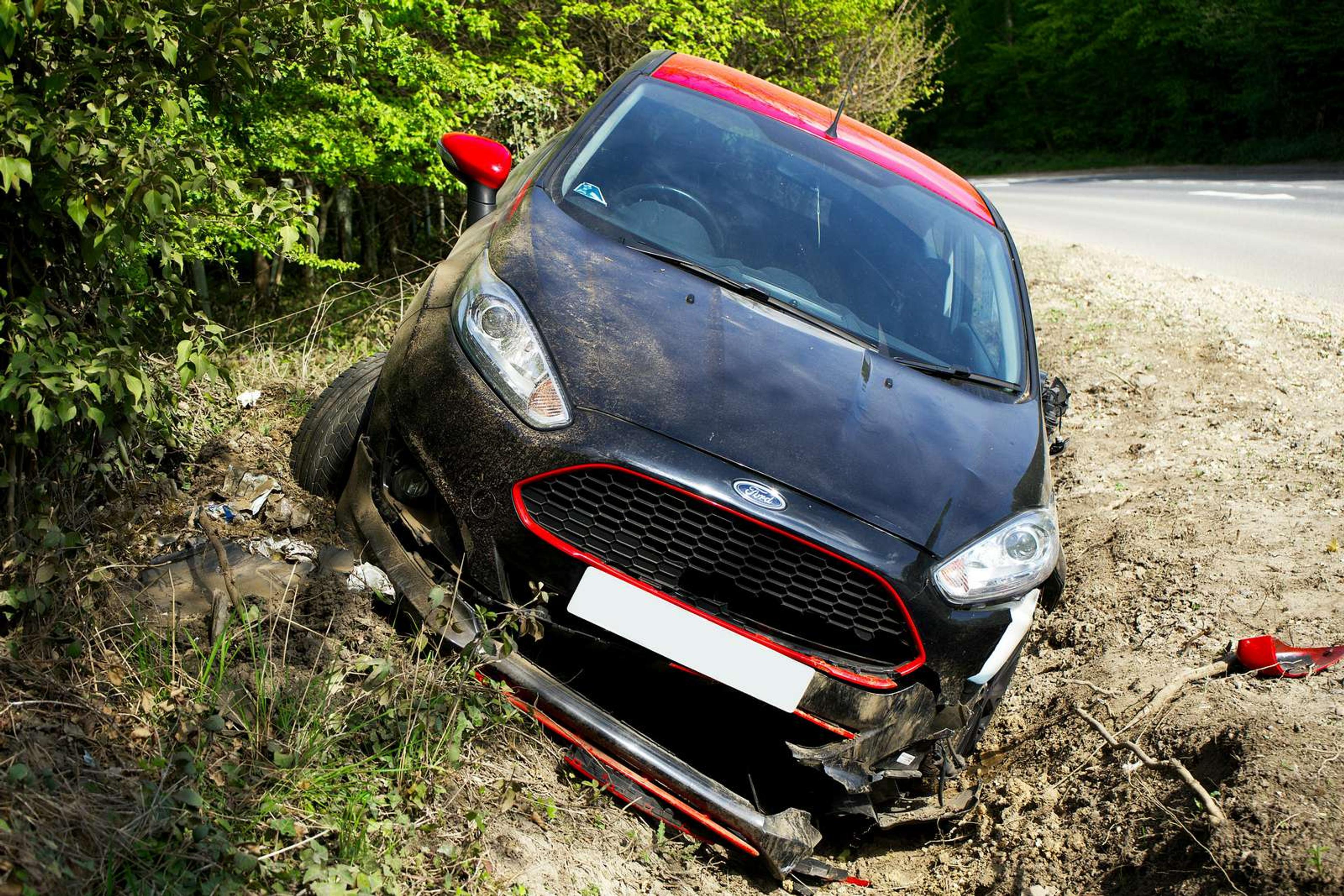
Every branded car title has a purpose. Depending on the title brand, you can determine whether the car has been damaged, had a lien on it, or was salvaged from a junkyard. Sometimes, a “rebuilt” title hides one of these definitions.
To understand the meaning of a rebuilt title, let’s explore how they differ from salvage car titles and evaluate whether buying a car flagged as rebuilt makes sense.
What does a rebuilt title mean?
A rebuilt title brand is a designation given to a vehicle that was previously salvaged due to damage or theft but has since been restored to a roadworthy condition.
In other words, it’s an evolution of the other branded car titles, and the term “evolution” is used to describe the legal status of a vehicle.
Unlike cars with flood or salvage titles, vehicles with rebuilt titles have the legal right to be registered and used on the road. However, the rebuilt title also indicates that the vehicle has undergone significant damage in the past, which cost more to repair than the car was worth.


Looks can be deceiving!
Don't risk your safety - check it with carVertical first
Rebuilt vs. salvage title
The best way to understand the difference between rebuilt and salvage titles is to examine a real-life example.
Let’s say you get into a severe car accident. The insurance company examines the damage and the total cost of the repairs needed to make it roadworthy again. Turns out, the repair expenses are higher than the car’s worth. As a result, the insurance company writes off the car, and its title receives a salvage brand, making it illegal to drive or register.
You can choose from a couple of options to continue. The easiest way is to scrap the damaged vehicle for parts or sell it as a donor, but there's also another way.
You can take a more challenging route and repair the car at your own expense, pass the necessary inspections, and apply for a rebuilt car title brand. Unlike the salvage title, a rebuilt title allows you to get the car back on the road.
Rebuilt title repair requirements
If you decide to rebuild a salvaged car, you must first check local state laws and regulations for rebuilt title repair requirements.
It’s essential to do so because some states require a rebuilder license before you can make vehicles roadworthy again, and ignoring this requirement could get you in trouble with local authorities.
If you don’t want to obtain a rebuilder license, you can always take an alternative route and contact the workshop with this type of license. Such companies can help you fix your car for a certain fee.
Typically, repairs involve fixing major damages like structural issues, engine problems, or safety components. Once these repairs are completed and inspected, the salvage vehicle can be reclassified as rebuilt.

How to get a rebuilt title
A thorough inspection is the first step in getting a rebuilt title for a car. This is crucial because any missed defects could affect safety and cost substantial amounts of money.
Seek assistance from a qualified professional. Their expertise will help you navigate the complexities of the damaged vehicle, identify weak points, and prevent the repair bill from escalating beyond your budget.
If you get the green light after inspecting the car, here’s a general overview of the process of how to get the rebuilt title:
1.Repair it. This is the most complicated and expensive part of making the salvage vehicle road-legal.
2.Keep documentation in line. It is vital to keep detailed records of all repairs and parts used during the repair process. This documentation serves as crucial evidence for the authorities, who will evaluate the repaired car.
3.Go through state inspection. After the repairs are completed, you must go through the state inspection to verify that all repairs were done right and that the vehicle is safe to operate on the road.
4.Apply for the new title. Once the vehicle has passed the state inspection, you can apply for a rebuilt title. Provide all the required documentation, such as proof of ownership, repair receipts, and inspection reports.
5.Take care of registration and rebuilt title insurance. With the rebuilt title in hand, you can register the vehicle in your name and obtain insurance coverage.
Tips for buying a rebuilt title car
If you don’t waste your time getting through vehicle inspection, expensive repairs, and other legal necessities to make it road-legal again, you can bypass it and just buy a car with a rebuilt title.
Buying a car outright is much easier and faster than repairing the whole car, but it also comes with another set of risks. Let’s break it down to help you know what to expect:
- Scan the vehicle's brain. Buy a specialized computer diagnostic software or visit a workshop, which could scan and check several computer modules to determine if everything works as the manufacturer intended.
- Inspect every inch. Buying a car with a rebuilt title should already indicate that you’re buying a vehicle that has been in an accident. So treat it like that and make sure it was repaired properly.
- Check the documentation. Does it have repair invoices, invoices for parts, or any evidence of how the car was repaired? Furthermore, make sure all the documentation is in place, which is necessary for you to register the car.
- Get a vehicle history report. Don’t take sellers' claims for granted because there's a high probability that something is left unsaid. Instead, use the vehicle's VIN to get a car history report and verify mileage, title changes, and other crucial information.
- Go for a test drive. This is the final and most pleasurable step. Try not to get aroused by the interior ambiance or the overall performance of the car. Try to concentrate on what matters: whether there are no vibrations, squeaks, or creaks and whether all driving aids work properly.

Check your VIN
Avoid costly problems by checking a vehicle's history. Get a report instantly!
Selling a rebuilt title car
Selling a car with a rebuilt title is a challenge. Buyers who seek well-maintained cars will always be suspicious of vehicles with a non-clean title, but there are a few rules and guidelines that could help you sell rebuilt title cars.

- Be honest. In this digital age, buyers already know what to expect from a car with a rebuilt title, so make interaction easier by disclosing the vehicle’s history upfront, including the reasons for the salvage title.
- Highlight the repairs. There’s nothing wrong with repairing a car with used quality parts. If you repaired a car with quality in mind, tell it, show it, and highlight it. And don’t forget the invoices for parts, repairs, and other work you’ve done throughout the whole process.
- Don’t overestimate the demand. Nobody will ever buy a rebuilt car for the same price as a car with a clean history. If you want to sell it fast, price it at least 30 to 50 percent lower than cars with clean titles. Otherwise, it’s just a rip-off.
Rebuilt title safety
The biggest concern regarding rebuilt cars is their structural rigidity, which forms the foundation of vehicle performance in an accident.
If even one structural pillar is deformed and subsequently stretched out or replaced, the designed safety measures lose their ability to absorb energy and reduce the risk of injury. In essence, damaged or repaired structural components will crumple as if they were made of plastic.
Another factor to consider with rebuilt cars is the integrity of their safety equipment. Airbags, sensors, cameras, and other equipment behave differently when damaged or repaired cheaply. For example, fake airbags could lead to death because, in the event of an accident, they would not deploy.
Pros and cons of rebuilt title vehicles
The appeal of the rebuilt title vehicles is like walking on a thin line, which requires extreme balance to avoid falling on a double-edged sword.
For usual buyers, the price is the biggest advantage of the rebuilt title vehicle. Most of the time, cars with these titles are 30 to 50 percent cheaper, and buying a newer car for a lower price could be an intriguing proposition.
However, it does not guarantee you will get a bargain of a lifetime. Most cars selling with rebuilt titles were dragged from the scrapyard just for one and only purpose – profit. It’s very rare to find cars that were repaired with knowledge, tools, and parts that would make the manufacturer proud.
As a financial investment, rebuilt cars pose bigger risks than rewards unless you have the time and patience to research previous owners' repair history.
Frequently asked questions

Article by
Aivaras Grigelevičius
Aivaras has been excited about cars since he was a little kid. Later, this passion for drivable objects (and everything that surrounds them) grew into work as an automotive journalist. Since then, Aivaras has written for several different magazines, covering anything with an accelerator pedal. He has a soft spot for cars with an Alfa Romeo badge.
